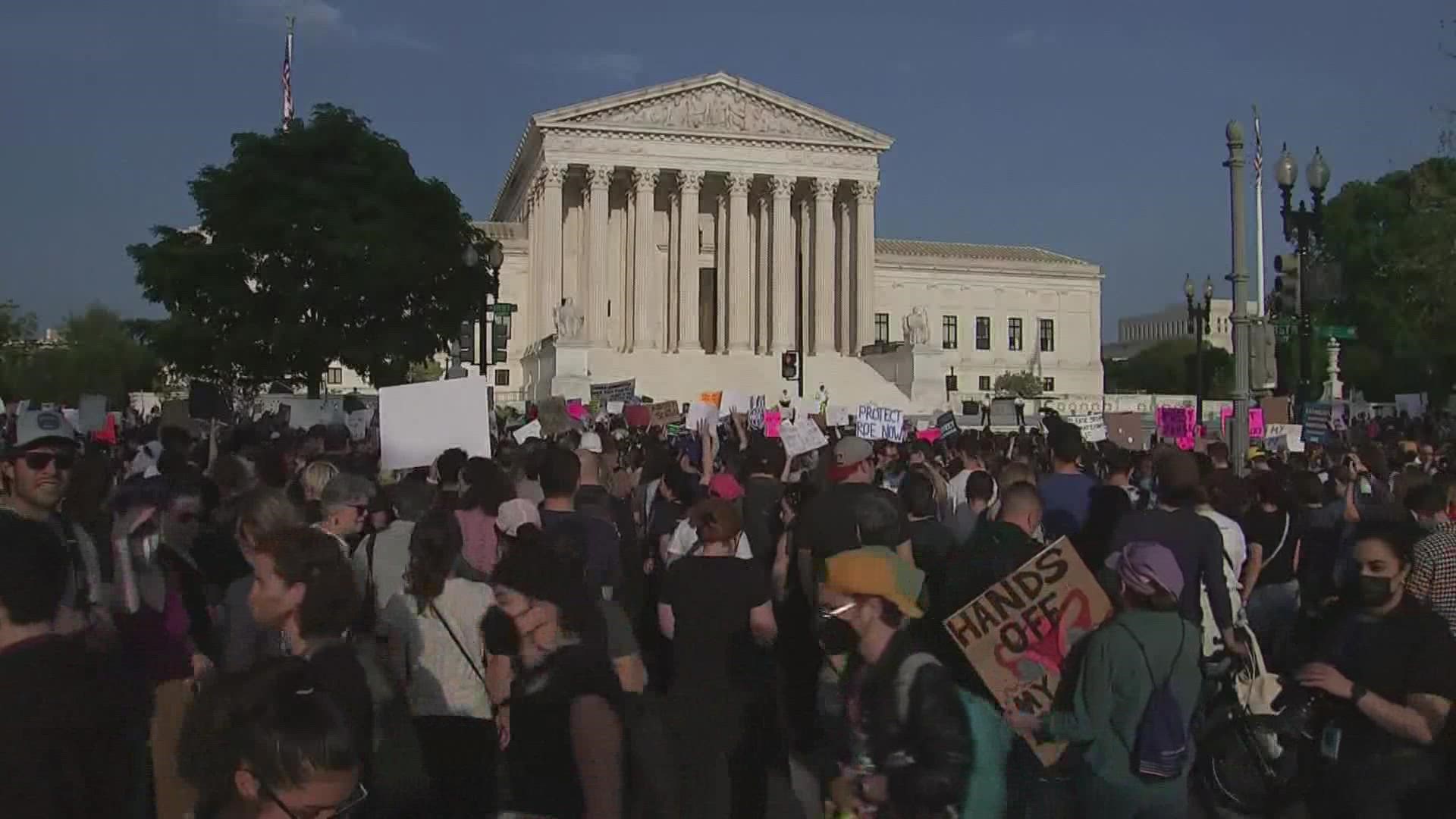PORTLAND, Maine — EDITOR'S NOTE: The video above aired May 4, 2022.
The Supreme Court has ended constitutional protections for abortion that had been in place for nearly 50 years in a decision by its conservative majority to overturn Roe v. Wade.
The focus will now shift to what state legislatures have on the books.
Within a year of Maine becoming a state and right up until the Roe decision, Maine's laws evolved from outlawing hiding a miscarriage in 1821, to forbidding prescribing contraceptive methods in 1907, allowing for abortions only if the mother's life was in danger in 1916.
In May of 1960, the Food & Drug Administration approved the world's first birth control pill. In 1967, the Maine Legislature repealed its contraceptive prescription ban. In a separate move the same year, lawmakers defined an abortion as "justified" if the pregnancy endangered the mother, the child would be born with a "grave physical or mental defect," or the pregnancy was the result of rape or incest.
On January 22, 1973, in deciding Roe v. Wade, the Supreme Court ruled access to abortion was protected under the constitution.
RELATED: Mills, King, Pingree call Supreme Court decision 'dangerous,' 'infuriating,' 'catastrophic'
Maine Law School Vice Dean Dmitry Bam told NEWS CENTER Maine in early May that states would have a lot of leeway if the Roe v. Wade decision was overturned.
"States have broad police powers," he said. "They can pass, basically, any kinds of laws as long as they don't violate individual rights."
Under current Maine Law:
- A doctor or nurse who refuses to perform an abortion is immune from liability.
- If an abortion procedure results in a live birth, all steps must be taken to help the child, under criminal penalty.
- An adult family member must consent to an abortion performed on a minor, except if sole consent is granted by a court.
- A minor seeking an abortion must receive non-coercive counseling of their options, with specific parameters for that counseling.
- Abortion services must be covered by MaineCare, as well as any insurance provider that offers coverage for pregnancy.
Thirteen states have passed "trigger laws," which ban or severely limit terms for legal abortions. Now that the Supreme Court has overturned Roe, state laws will take effect.
Dr. Richard Kahn is a medical historian and a retired physician who spent part of his career in family planning and began practicing just before the Roe decision.
He said women seeking an abortion, who had the means to travel to states where it's legal, have always had that option.
"The well-to-do women will be able to get it," he said about the potential reversal. "It's the middle/lower socioeconomic classes it would really hit the hardest and be most difficult."

